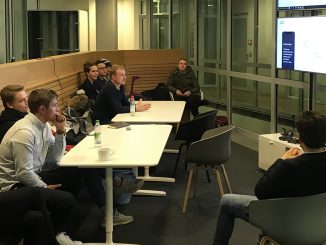
Cora and Pan Demic love social activities. They like partying, going to the movies or to festivals. However, in times of Covid-19, their social media timelines are full of #FlattenTheCurve and #SocialDistancing instead of #partying and #nightlife. What does this mean for Cora and Pan? Why should they refrain from social events and what does that have to do with the entire society? They are not infected. And in their perspective the risk of getting the virus is low enough to not outweigh the benefits of going out and partying. But exactly here are Cora and Pan Demic wrong. It is this behavior that leads to what economists see as market failure.
This case of market failure occurs due to the fact, that Cora and Pan only compare their individual benefit to their individual costs, i.e. the costs of a potential (from their perspective unlikely) infection versus the benefits of (also from their perspective) unforgettable night out. What they completely ignore is the effect their behavior has on society, the fact that their actions will contribute to the spread of the virus, to endangering people and to burdening the health system. Is there an economic solution to this problem?
The price mechanism is the outcome of free markets. Prices reflect the scarcity of a good/activity: the price is higher if either supply is low (e.g. because scarce production factors are needed) or demand is high. This means that prices can be used to influence individual behavior. Currently, the price for the good “social interaction” is much too low. Cora and Pan only pay for drinks and maybe the cover charge in a club when they go out. However, this price only considers the direct costs such as the production of the drinks, the service in the club/bar, etc.
It would look different if all costs were considered: The cost of additional nursing staff to care for the sick, the extension of crisis measures, losing loved ones, etc. If these costs were considered, the beer they drink with their friends on a night out wouldn’t cost 4 euros, but probably 300 euros. Would Cora and Pan Demic still decide to go out? The night out would become very expensive and they might rethink their decision of partying. Therefore, influencing the price mechanism can achieve a more desirable market outcome from a societal perspective. But what if Cora and Pan just meet their many friends privately, without any beer or clubs involved and therefore without a price to adjust? A new tax, like a social interaction tax, could make this kind of meeting considerably more expensive. 300 euros per hour of partying, for example.
Of course, some people will be willing to pay this price, nevertheless the number of partygoers would be reduced. In addition, the additional social cost of partying could be compensated by the additional income. However, such solutions are not practicable and therefore really difficult to implement. The remaining alternative is therefore to limit nights out directly. Or, in other words, to impose a curfew.
To sum up: A negative externality leads in this case to a consumption of social interaction that is too high for the society. Since the market cannot overcome this problem on its own, a market intervention becomes necessary. A (in economics) so called social planner that has everyone’s best interest in mind must implement policies making sure that social interactions are reduced to an optimal level. He can achieve this either by using the price mechanism to incentivize appropriate behavior or by implementing bans. This being said, let’s all #FlattenTheCurve




